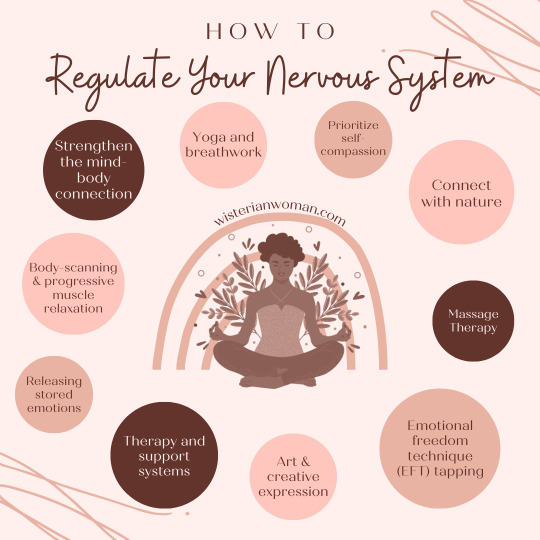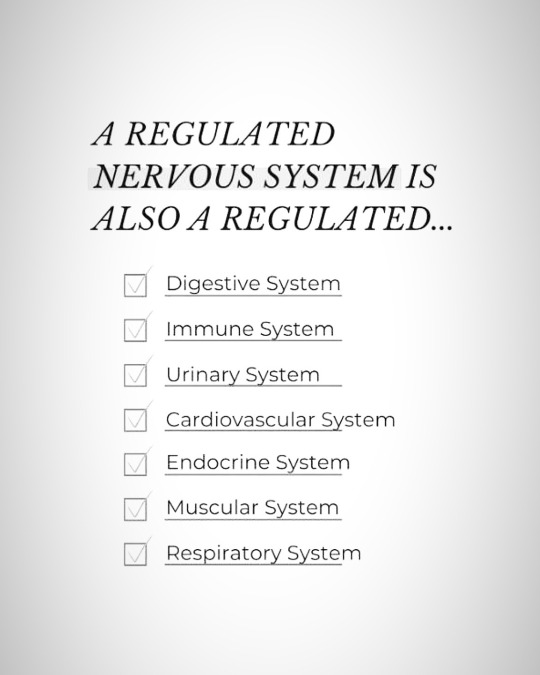#Stress reduction
Text
How to tell when your cup is empty:
in the next few days, we'll be going through a series on filling your own cup in fulfilling and healthy ways, starting with journaling ideas and finally picking our own activities. but first -- how do we know when our cup is empty? it's a little different for every individual, but there's often a few things you can familiarize yourself with to understand in your own physical and emotional space.
-- what is your 'cup?' your cup is your emotional, energetic, and often physical energy. think of waking up well rested and energized for a new day! now compare that feeling to the sensation of coming home after work after a long day, complexly drained and exhausted. this is the feeling of an empty cup. you might also feel....
~ fatigue. this is the most common symptom! often when your cup is empty, you're drained by emotional and energetic events. you have very little energy to give to yourself and others, which is why self-care becomes much more difficult when we're working on empty (often this translates to the physical as well -- we crave sweet and salty things to help boost our adrenal glands and combat fatigue.) this also leads to irritability, because our energy is so drained we revert to internal and external negativity.
~ a felt weight. when my cup is empty or dangerously close, I can feel a heavy sensation centering in my chest; almost this huge emptiness. it's good to create mindfulness around these sensations, because it helps heighten awareness of warning signs.
~ worry and anxiety. you might feel as though you're being helplessly pulled in different directions, without the time or energy to finish anything. you're trying to pour from a cup you haven't replenished!
questions to ask yourself:
~ when do I often feel empty?
~ what activities drain my cup?
~ do any of my own habits help drain my cup?
~ how do I give my energy away and fill other people's cups?
~ how do I feel afterwards?
~ what's my usual habit when my cup is running low? how do I instinctually try to fix it?
~ do those habits serve me well?
in the upcoming weeks, we'll be discussing ways to fill our cups and tweak our individual habits to serve us better :)) have a lovely day, and tune in soon!
drop any questions in the askbox :))
#mental health#mental wellness#self care#self improvement#self love#mental wellbeing#self help#depression advice#depression and anxiety#positivity#filling your cup#anxiety coping#anxiety advice#depression coping#stress#stress reduction#stress and anxiety#coping with stress#coping with anxiety#self knowledge#self worth#self healing#sunrise thoughts: filling your cup
153 notes
·
View notes
Text
Avoiding caffeine on an empty stomach is also ideal for hormone balance, for those with a compromised gut, and for those with anxiety.
#caffeine#caffeine addiction#cortisol#anxiety#anxiety relief#stress#stress less#stress reduction#stress reliever#stress management#coffee#hormone balance#hormone imbalance#guthealth#gut#gut health#brain health#hormone health
15 notes
·
View notes
Text
Breathing in, my breath grows deep - breathing out, my breath goes slow
"Explore the profound mindfulness practice of 'Breathing in, my breath grows deep; breathing out, my breath goes slow.' Inspired by Thich Nhat Hanh's teachings, this simple yet transformative exercise unites body and mind, cultivates calm, and deepens our understanding of life's impermanence and interconnectedness. A gateway to the richness of the present moment is but a breath away."
The mindfulness exercise, “Breathing in, my breath grows deep; breathing out, my breath goes slow,” is a simple yet profound practice inspired by the teachings of Zen master Thich Nhat Hanh and the Plum Village tradition. It taps into the natural rhythm of our bodies and minds, serving as a gateway to deeper understanding and presence.
As you breathe in, you consciously invite your breath to…

View On WordPress
#Conscious Breathing#Guided Meditation#Impermanence#Interconnectedness#Meditation#Mental Health#Mindful Breathing#Mindfulness#Plum Village#Present Moment#Stress Reduction#Thich Nhat Hanh#Wellness#Zen Buddhism
48 notes
·
View notes
Text
😖Monday struggles got me stressed out, time to squeeze SpongeBob’s house!🍍🏝️
#squishy#squishies#spongebob#spongebob squarepants#spongebob collections#spongebob crafts#stressed out#stress relief#stress reduction
7 notes
·
View notes
Text
⋆⭒˚。⋆ Have a Great Day! ⋆⭒˚。⋆
Hi ya'll, hope you are having I good day! Today I noticed that I've been kind of stressed and felt not so great, so I had too remind myself that everything's ok. It helped a lot, so this is your reminder that you are amazing and everything's going to be all right.
⋆⭒˚。⋆ "Don't Worry, Be Happy Now" - Bobby McFerrin ⋆⭒˚。⋆
Tips for Stress, Doing Work, and When You're Not Feeling Good:
Stay Calm
Listening to Music (I blast Taylor Swift and sing along, it nearly always helps me forget about the stress. Or I play music while studying.)
Make a Gratitude List
Read a Book and Escape into a Magical World
Exercise for Physical and Mental Heath (whatever your favorite way is, it should be fun. I mostly do swimming.)
Set Goals and Track Progress (manageable ones, so they don't cause more stress)
Reminder: Mental Health is Just as Important as Physical
Bye, hope this helps someone!
You all slay!
#slay#have a great day#have a nice day#stress management#stressrelief#stress reduction#stress#mental health#unwind#reading#reader#taylor swift#music#outdoors#walk#outdoor walk#bath#books#books and reading#mental health is health#mental health matters#school#school stress#studying#gratitude#gratitude journal#gratitude list#swimming#swim#exercise
15 notes
·
View notes
Text
youtube
#asmr videos#asmr video#asmr sounds#asmr#no stress#stop stress#stress reduction#stress relief#relax#for you#usa#america#india#japan#korea#asmr no talking#no talking#paper#music#Youtube
4 notes
·
View notes
Text


Vanilla Latte Vibe
Survived from work and personal life. Many stuff happening. Time to have a vanilla latte in a cozy cafe, to cool down our nervous system. Peace and quiet.
#foodie#cuisine#food blogger#food photography#blogoftheday#foodgasm#foodporn#asian food#food diary#coffee latte#coffee time#vanilla latte#caffeine#cozy#stress free#stress relief#stress reduction#cafe latte#cafe#coffee#emotional support
9 notes
·
View notes
Text
This is for my fibercrafting mutuals:
5 notes
·
View notes
Text

How to Regulate Your Nervous System for a Balanced Life
#Regulating nervous system#Transformative power#Mental health#Nervous system balance#Emotional well-being#Self-awareness#Stress management#Anxiety relief#Emotional regulation#Mind-body connection#Holistic healing#Self-compassion#Mindfulness practice#Physical relaxation#Emotional healing#Social support#Healthy lifestyle#Coping strategies#Inner peace#Self-care#Wellness tips#Emotional balance#Healing journey#Coping mechanisms#Self-discovery#Relaxation techniques#Mindful living#Stress reduction#Emotional health#Self-improvement
3 notes
·
View notes
Text
It turns out that the common soil bacterium M. vaccae acts like an antidepressant, boosting the levels of happy hormones, serotonin and norepinephrine, in humans and mammals. It also reduces stress.
"Soil: The incredible story of what keeps the earth, and us, healthy" - Matthew Evans
#book quotes#soil#matthew evans#nonfiction#soil biota#bacteria#mycobacterium#mycobacterium vaccae#antidepressant#hormones#serotonin#norepinephrine#humans#mammals#stress relief#stress reduction#world soil day
5 notes
·
View notes
Text

#stress#wellness#stress reliever#stress reduction#stress relief#stress management#stress less#mental heath#balance
8 notes
·
View notes
Text
WHY YOGA IS IMPORTANT NOW DAYS
Yoga is like a special place in our hectic world, where taking care of ourselves can be difficult. It's not only about getting in shape; it also makes us feel better mentally. Yoga may feel exhausting at first, but if we stick with it, good things begin to happen. Yoga is about linking our bodies and thoughts for complete health, not simply workouts. It's an ancient exercise that involves meticulous movements and attentive breathing to care for our inner selves. The peace we receive during yoga follows us outside of it. When life gets tough, it helps us stay strong and calm. So, don't forget about yoga. It acts as a guide, leading us to feel happy and be genuine to ourselves.
Stress Reduction - High levels of stress and anxiety are common in modern life. Yoga offers helpful approaches for stress management, relaxation, and total mental well-being. Regular practice can boost mental toughness and create a sense of inner serenity.
Posture Correction - Sitting at a desk for long periods of time and using electronic gadgets can lead to bad posture and other health issues. Yoga positions can help realign the spine, improve posture, and alleviate musculoskeletal pain.
Concentration and focus have improved - Yoga cultivates attention and concentration in a world full of distractions. Yoga increases mental clarity, cognitive function, and productivity through various asanas (poses) and breathing techniques.
Physical Fitness - Yoga incorporates a wide range of positions and motions that develop flexibility, strength, and balance. It provides a comprehensive approach to physical fitness for people of all ages and fitness levels.
#yoga practice#fitness#fit girls#stress reduction#concentration#physical therapy#physical health#posture correction#peace#inner peace#peaceful#workout#my work#work in progress#musculoskeletal physiotherapy#self improvement#improve posture
10 notes
·
View notes
Text

#buddhism#healing#meditation#self awareness#self improvement#self love#self control#book author#mindfulness#mind control#wellbeing#inner peace#emotional#mental health#mind body connection#stress reduction#sprituality#attention
2 notes
·
View notes
Text
The Science Behind Meditation: How It Affects Your Brain and Consciousness

Article Outline
Introduction
What is meditation?
Importance of meditation in modern life
The Brain and Consciousness
youtube
Understanding the brain and its functions
The concept of consciousness
The Effects of Meditation on the Brain
Brainwave patterns during meditation
Increased gray matter and brain plasticity
Improved focus and attention
Meditation and Emotional Well-being
Stress reduction and cortisol levels
Enhanced emotional regulation
Positive effects on mental health
Altered States of Consciousness
Exploring different states of consciousness
Meditation and altered states
Transcendental experiences
Mindfulness and Self-Awareness
Cultivating mindfulness through meditation
Increased self-awareness and introspection
Improved decision-making and emotional intelligence
Meditation and Cognitive Abilities
Enhanced memory and learning
Increased creativity and problem-solving skills
Improved cognitive flexibility
The Role of Meditation in Physical Health
Boosting the immune system
Lowering blood pressure and heart rate
Pain management and improved sleep
The Link Between Meditation and Longevity
Telomeres and cellular aging
Anti-aging effects of meditation
Promoting overall well-being and longevity
Combining Meditation with Other Practices
Yoga and meditation
Mindfulness-based therapies
Incorporating meditation into daily life
Conclusion
FAQs
Can anyone meditate, regardless of their religious beliefs?
How long does it take to experience the benefits of meditation?
Can meditation cure mental illnesses?
Can meditation be practised while lying down?
What are some tips for beginners to start meditating?
The Science Behind Meditation: How It Affects Your Brain and Consciousness
Introduction
In today's fast-paced world filled with constant distractions, finding moments of calm and inner peace has become essential. This is where meditation comes into play. Meditation is a centuries-old practice that involves focusing the mind and achieving a state of deep relaxation. But what exactly happens in our brain and consciousness when we meditate? In this article, we will explore the science behind meditation and uncover its profound effects on the brain and consciousness.
The Brain and Consciousness
Before delving into the effects of meditation, it is important to understand the brain and consciousness. The brain is a complex organ responsible for controlling our thoughts, emotions, and bodily functions. Consciousness, on the other hand, refers to our awareness of ourselves and the world around us. It is the subjective experience of being alive.
The Effects of Meditation on the Brain
When we meditate, our brain undergoes significant changes. Research has shown that meditation alters our brainwave patterns, shifting them from the fast-paced beta waves associated with active thinking to the slower alpha and theta waves associated with relaxation and deep focus. This shift in brainwave activity induces a state of calm and clarity.
Moreover, regular meditation has been found to increase the gray matter in specific brain regions. Gray matter is responsible for processing information, regulating emotions, and controlling attention. By increasing gray matter, meditation enhances these cognitive functions, resulting in improved focus, attention, and emotional regulation.
Meditation and Emotional Well-being

One of the key benefits of meditation is its positive impact on emotional well-being. Stress has become a prevalent issue in modern life, and chronic stress can have detrimental effects on our mental health. Meditation acts as a powerful stress reduction tool by lowering the levels of cortisol, the stress hormone, in our bodies. This reduction in cortisol leads to decreased anxiety and improved overall emotional well-being
Additionally, meditation enhances emotional regulation. It allows individuals to develop a greater sense of self-awareness and the ability to observe their emotions without judgment. This awareness and acceptance of emotions lead to a more balanced and positive emotional state.
Furthermore, numerous studies have shown that meditation can have a significant impact on mental health. It has been found to reduce symptoms of depression, anxiety, and post-traumatic stress disorder (PTSD). By promoting relaxation and reducing the activity of the brain's default mode network, meditation helps individuals break free from negative thought patterns and cultivate a more positive mindset.
Altered States of Consciousness
Meditation has long been associated with altered states of consciousness. These states go beyond the ordinary waking state and can involve experiences of deep tranquility, profound insights, or a sense of unity with the universe. Through consistent practice, individuals can access these transcendent states and tap into their inner wisdom and spiritual growth.
Mindfulness and Self-Awareness
Mindfulness, a key component of meditation, involves paying attention to the present moment without judgment. This practice cultivates self-awareness and allows individuals to observe their thoughts, feelings, and sensations with clarity. By developing mindfulness through meditation, individuals can gain a deeper understanding of themselves and their patterns of behavior, leading to personal growth and transformation.
Moreover, meditation enhances introspection, which is the ability to reflect on one's thoughts and inner experiences. This introspective capacity helps individuals gain insights into their beliefs, values, and desires. With increased self-awareness and introspection, individuals can make more conscious choices, improve decision-making, and develop greater emotional intelligence.
Meditation and Cognitive Abilities
In addition to its emotional benefits, meditation has a profound impact on cognitive abilities. Regular meditation practice has been linked to improved memory and learning capabilities. By enhancing the connectivity and efficiency of neural networks, meditation facilitates the consolidation of new information and retrieval of stored memories.
Furthermore, meditation boosts creativity and problem-solving skills. By quieting the mind and allowing thoughts to flow freely, individuals can tap into their creative potential. This creative state of mind often leads to innovative ideas, unique perspectives, and solutions to complex problems.
The Role of Meditation in Physical Health
While meditation primarily focuses on the mind, it also has significant implications for physical health. Research has shown that meditation boosts the immune system, enhancing the body's ability to fight off infections and diseases. It also helps regulate blood pressure and heart rate, leading to a healthier cardiovascular system.
Moreover, meditation has been found to be an effective tool for pain management. By redirecting attention away from pain signals and increasing the release of endorphins, the body's natural painkillers, meditation can reduce the perception of pain and provide relief.
Additionally, meditation promotes improved sleep quality. By calming the mind and reducing stress, it helps individuals achieve a state of deep relaxation, facilitating a restful night's sleep.
The Link Between Meditation and Longevity
Recent research has explored the fascinating connection between meditation and longevity. Telomeres, the protective caps at the ends of our chromosomes, play a crucial role in cellular aging. Shortened telomeres are associated with aging and age-related diseases. Studies have shown that regular meditation practice can lengthen telomeres, effectively slowing down cellular aging and promoting longevity.
Furthermore, meditation's overall impact on well-being contributes to a longer and healthier life. By reducing stress, improving mental health, and promoting positive lifestyle choices, meditation becomes a powerful tool for increasing longevity and enjoying a fulfilling life.
Combining Meditation with Other Practices
Meditation can be combined with other practices to enhance its benefits. For example, practising yoga alongside meditation can deepen the mind-body connection and promote physical flexibility and strength. Mindfulness-based therapies, such as mindfulness-based
cognitive therapy (MBCT) and mindfulness-based stress reduction (MBSR), integrate meditation into therapeutic approaches to address various mental health conditions, such as depression and anxiety. These programs combine meditation with cognitive-behavioral techniques to enhance well-being and promote self-care.
Moreover, incorporating meditation into daily life can amplify its effects. By setting aside dedicated time for meditation each day, individuals can establish a consistent practice and reap the benefits in the long term. Additionally, integrating mindfulness into everyday activities, such as mindful eating or mindful walking, brings a sense of presence and mindfulness into all aspects of life.
Conclusion
Meditation is far more than just a relaxation technique—it is a transformative practice that has a profound impact on the brain and consciousness. From altering brainwave patterns to improving emotional well-being, cognitive abilities, and physical health, the scientific evidence supporting the benefits of meditation continues to grow.
By cultivating mindfulness, self-awareness, and a deeper connection with oneself, individuals can experience enhanced well-being, reduced stress, and improved overall quality of life. The regular practice of meditation holds the potential to unlock our inner potential, promote personal growth, and lead to a greater sense of peace and fulfillment.
Frequently Asked Questions (FAQs)
Can anyone meditate, regardless of their religious beliefs?
Yes, meditation is a practice that can be embraced by people of all religions or no religious affiliation. It is a secular practice that focuses on cultivating mindfulness and inner peace.
How long does it take to experience the benefits of meditation?
The benefits of meditation can vary from person to person. Some individuals may notice positive effects after just a few sessions, while for others, it may take longer. Consistency and regular practice are key to experiencing the full benefits of meditation.
Can meditation cure mental illnesses?
While meditation can have a positive impact on mental health, it is not a substitute for professional treatment. It can complement therapy and medication in managing mental illnesses, but it is essential to seek appropriate medical support when needed.
Can meditation be practiced while lying down?
Yes, meditation can be practiced in various postures, including lying down. However, it is important to maintain a state of alertness and avoid falling asleep during the practice.
What are some tips for beginners to start meditating?
Begin with short sessions, gradually increasing the duration over time. Find a quiet and comfortable space, focus on your breath or a specific object, and gently bring your attention back whenever your mind wanders. Experiment with different techniques to find what works best for you.
#Meditation#Science of Meditation#Brain and Consciousness#Meditation Benefits#Mindfulness#Neuroplasticity#Meditation Techniques#Meditation Research#Mental Health#Emotional Well-being#Cognitive Abilities#Physical Health#Mind-Body Connection#Stress Reduction#Meditation and Brainwaves#Altered States of Consciousness.#Youtube
8 notes
·
View notes
Text


I dont know why but this is so fun. I spent my most of the time playing like this on Tumblr. It's kinda addictive. Am I the only one who do this ?
#tumblr blog#girlblogging#my post#fun post#addiction#tumblr addict#explore#stress relief#stress reduction#relief#satisfying#satisfaction
2 notes
·
View notes
